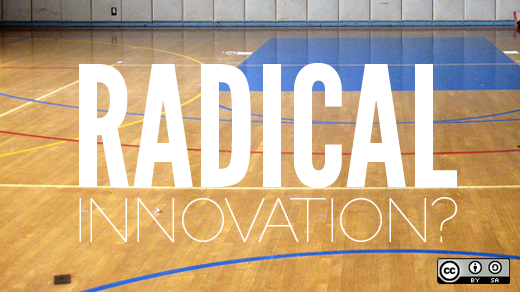LeBron James is an amazing basketball player. But is he also a management innovator? I couldn’t help but ask myself that question as I watched the news reports last week that three of the biggest professional basketball stars have chosen to play together in Miami. Early reports indicate that each of the players will take a pay cut in order to play together.
Historically in the NBA and most professional sports teams, the owner has all the power. In some cases a general manager wields the power on behalf of the owner. Over the past decade, a few coaches have unsuccessfully attempted to share power with owners. In all cases the players are highly paid to play the sport. The players are not part of the management team and are not involved in personnel decisions. The players have very little power.
So what happened last week?
The NBA experienced an organizational earthquake.
I noticed several parallels between what is happening in the NBA and what I see happening more broadly in business because of the open source way.
Leading business strategist Gary Hamel has said that open source is one of the greatest management innovations of the 21st century. In The Future of Management, Gary writes,
“The success of the open source software movement is the single most dramatic example of how an opt-in engagement model can mobilize human effort on a grand scale... It's little wonder that the success of open source has left a lot of senior executives slack-jawed. After all, it's tough for managers to understand a production process that doesn't rely on managers.”
In open source, developers opt-in to working on projects that interest them.
Last Thursday, for the first time in NBA history, three players opted-in to a project that interested them: winning an NBA title together as part of the Miami Heat.
What is particularly interesting is that the players made this decision and not the managers. This is a huge, fundamental shift for professional basketball. This is not an owner hiring a player. In this case, the players chose the owner. Or more specifically, the players chose the environment that they wanted to work in.
The generally accepted idea is that top talent goes to the highest bidder. Daniel Pink has written a lot about employee motivation, and specifically that money may not be the most powerful motivator:
“So we tend to think that people need to have big financial incentives attached to everything they do, when if fact, here you have something that doesn’t have at least a direct financial incentive for people. That they’re spending their time on and doing amazing work. Why are they doing that? They’re doing it for the sense of challenge. I think that’s a big part of it. To get better at something that matters.
I also think that the collaboration side of it is important in the sense that if you collaborate with great people, you’re more likely to learn, and so that’s going to enhance your mastery.”
Using the words of Daniel Pink, these three players have chosen to collaborate together in order to enhance their mastery. To do something that matters: win a championship. Money was not the deciding factor.
It appears that many of the same principles that have helped the open source movement become successful are now being put into practice in the NBA. In the 21st century, talented individuals will chose to work on projects that matter and that make a difference. It happens in the open source world. And now it is happening in the NBA too.
So, what is an NBA owner to do?
Perhaps innovative owners will change their business models to empower employee-owners.
What do you think? Are we seeing the first signs of radical management innovation in professional sports?






2 Comments